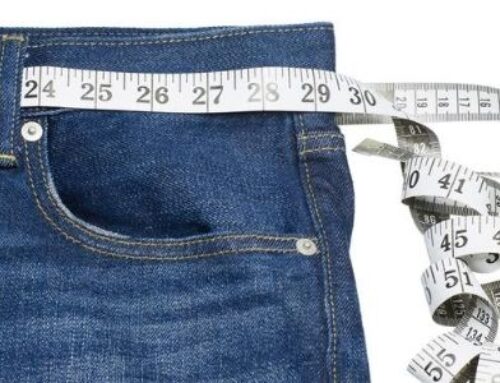 Are you are self confessed chocoholic? Are you addicted to sweet foods? It’s a pretty common assumption that sugar is ‘addictive’, just like substance or alcohol abuse, but is this actually the case?
Are you are self confessed chocoholic? Are you addicted to sweet foods? It’s a pretty common assumption that sugar is ‘addictive’, just like substance or alcohol abuse, but is this actually the case?
I’ve definitely had moments when I’ve craved chocolate or ‘needed’ something sweet after dinner so I can relate to the notion of needing a ‘fix’.
Food addiction?
Within the scientific community there’s lots of disagreement on whether or not certain foods are addictive, so a definition for food (or sugar) addiction doesn’t actually exist.
In the end, I believe it really doesn’t matter what the definition is, or if true food addiction really exists. The reality is that food has become much more apart of our lives than just fuel for our bodies. It’s pleasure for our soul, it picks us up when we are down (physically and emotionally), we celebrate the good, bad and boring times with it and it makes us feel good.
I love the taste of ice cream, salty chips and crackers, cheese and wine. Chocolate is the ultimate sensory experience and all of my favourite meals have gained said status due to their inarguably good taste!
One of the reasons scientists have decided to include sugar into the list of dependance items is because it activates the pathway in the brain that relates to ‘reward’, which is also activated by addictive drugs. When it comes to food, it’s the ‘rewarding’ of ourselves that we like.
I went through a phase in my nutrition career when I labelled certain high sugar, salt or fat foods as ‘treat’ foods. This meant that they were OK, every now and then, as a treat, but shouldn’t be eaten every day. The problem I’ve discovered with this is that we live in a busy, stressful and often unhappy world and thus a daily (or more often) treat is a nice escape from our mundane, depressed lives.
Sorry if I’m sounding rather morbid, but it’s dawned on me that calling ‘junk’ foods ‘treat’ foods may be counter productive. I don’t know about you but treats make me happy and I like to feel happy as often as I can.
What if healthy food was called ‘treat’ food? What if we actually treated ourselves daily with wholesome food that made us feel good about ourselves and not full of regret and self loathing 5 mins after we’ve eaten it? Junk food shouldn’t be called treat food. It really should be called ‘sometimes’ food. And treating ourselves should happen daily but in a way that enhances our physical and emotional wellbeing.
So what about the feelings of dependence? What about the cravings? What about the urges for food that you just can’t resist? What are you supposed to do about that?
Research has shown that palatable food (food that tastes amazing) does cause the release of dopamine (a feel good chemical) in your brain. So certain foods do make you feel better than others, just because they taste good. Due to the fact that we would prefer to feel good rather than bad we actively seek out that food again to re-experience the ‘feel good’ factor. Is it addictive? Probably not, but nonetheless when you’ve medicated your sadness, stress, disappointment and misery with food for 20 years, it can be a hard habit to break.
Food as reward
I think the biggest part of breaking your dependance on sugar or other foods that you just can’t resist lies in your understanding of the reward.
There are 3 different aspects to a reward: liking, a pleasant experience and wanting. Wanting is the motivation to seek out the reward to experience it again. Research suggests that dopamine is released in response to wanting. It’s also released in such a way that we experience the ‘rush’ in anticipation of receiving the reward, not afterwards.
So perhaps this explains why sitting in a cafe and staring at the cakes in the window makes the urge to ‘reward’ yourself feel so good but after you’ve eaten it you realise that it was over-rated. I know I’ve definitely felt that way. Food is an immediate indulgence. You only want it in the moment and then once the moment’s past you don’t feel like you’ve missed out because it’s not right in front of you any more.
Guess what other things activate your brain’s reward pathways? Music, humour, winning, expecting to win a prize, attractive or smiling faces, a mother recognising their child and (my favourite) being ‘in love’. This fact alone suggests that food isn’t addictive in the same sense as drugs but actually elicits a normal response that occurs in many of life’s pleasurable experiences.
How to beat it…
There’s no quick fix or magic pill to make you stop wanting sugar or foods that you crave. Ultimately, you crave what you regularly feed yourself. So… the only way to reduce your cravings is to take a break. If you regularly have something sweet to eat after dinner, it’s very natural for you to always feel like eating something sweet after dinner. You’re in a bad habit, that’s all. Research has shown that fasting particular foods doesn’t increase the cravings like it does with true drug addiction, it actually reduces them.
Changing your habits and behaviour is hard work. So you need to get prepared. Here are are few tips to help you beat the sugar high and get in control of your eating.
1. Decide that you want to change
Change – real change – requires that you give up one aspect of your life or behaviour for the sake of something better. In the end you have to decide that losing weight or changing your eating habits is more important to you than the foods that need to take a back seat.
2. Precisely articulate what triggers your cravings
Knowing what triggers your desires for certain foods helps you prepare for those moments before they happen. If you tend to eat when you are stressed, then instead of reaching for a chocolate bar when you walk away from your desk, bring your sneakers and go for a walk. When I’m feeling sad and tempted to eat for no reason, I take a shower and wash my hair which really helps me feel much better.
3. Make a meal plan
Being prepared with your meals is really important when it comes to changing your eating habits. For further reading and a free download check out my article: The Benefits of Meal Planning.
4. Find yourself a distraction tactic
This is something that you do instead of your bad eating habit. You see, you can’t stop one habit easily without replacing it with another one. For example, if you like to have something sweet to eat after dinner, try replacing dessert or chocolate with a flavoured herbal tea. If you get bored during a certain point in the day instead of reaching for an office fundraiser or buying a blueberry muffin, why not plan the next weeks worth of meals and exercise sessions. Maybe you need a hobby. For further reading, check out my article on boredom eating.
5. Write out and regularly re-read your goals
Sometimes we just need to be reminded of what it is that we want more. If weight loss is your goal than write down your goals and put them on the fridge, pantry or mirror in the bathroom where you can regularly see them.
6. Don’t keep temping food in the house
This one is simple. If it’s not available you can’t eat it.
7. Get you’re family & friends on board
Enlisting the help of people close to you will help you stay on track. We need to be accountable to someone when we are making tough lifestyle adjustments. Make sure these people are positive and encouraging and stay away from junk food enablers.
8. Keep a food diary
A large proportion of our eating habits happen without us even being aware of them. Mindless eating is a huge problem in our busy multi-tasking lives. Eating while doing other tasks often results in over consumption or eating even when you’re not hungry. Keeping a food diary will help you raise awareness of exactly what you put in your mouth and highlight some of your bad habits.
9. Explore non-food rewards
Like I said earlier, we all like to feel good. Find a way to reward yourself that isn’t food related. New clothes, a new book, a hair cut or treatment, a massage… the list is endless, so take the time to sit down and work out nice things that you can reward yourself with that wont add to your waistline.
10. Eat a well balanced diet
Fad dieting, severe restriction and skipping meals will predispose you to binge eating and overconsumption at your next meal time. Don’t do it. Follow a healthy, well-balanced meal plan with protein, high fibre carbohydrate, healthy fats and lots of fruit and vegetables.
The most important thing to remember is to not give up. You want to change your eating habits and lifestyle forever, so give yourself a break if you have a relapse into old habits and try again tomorrow. The great thing about life is that it’s never too late.
Here at The Healthy Eating Hub we are keen to help you kick your food addiction.
If you’d like further help with your nutrition please click below:





